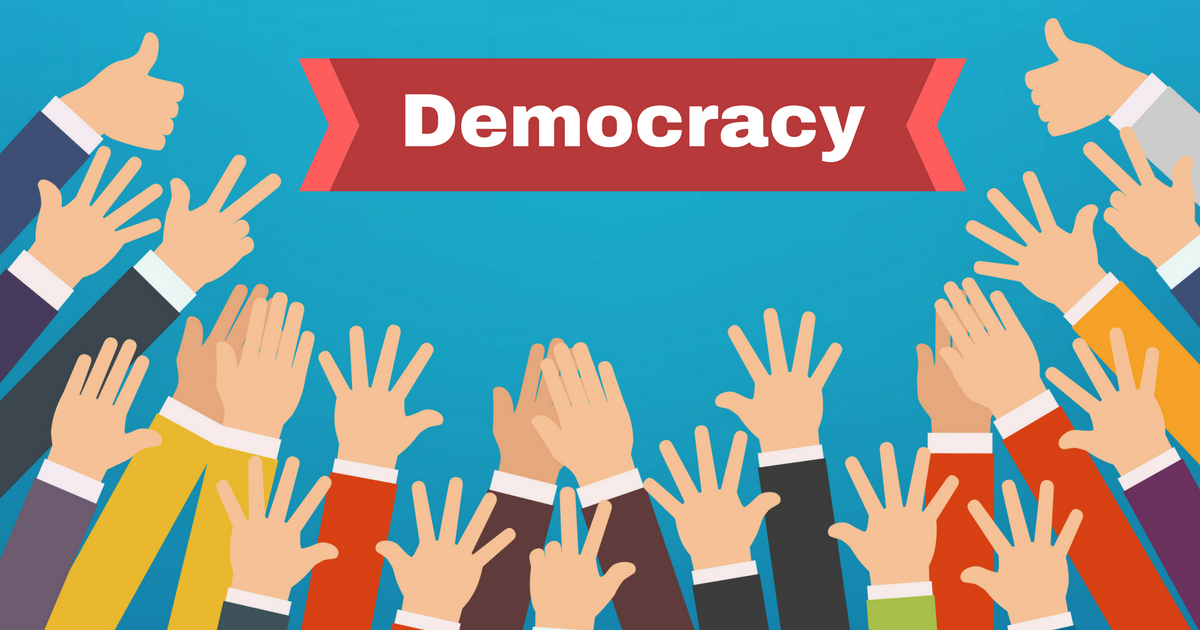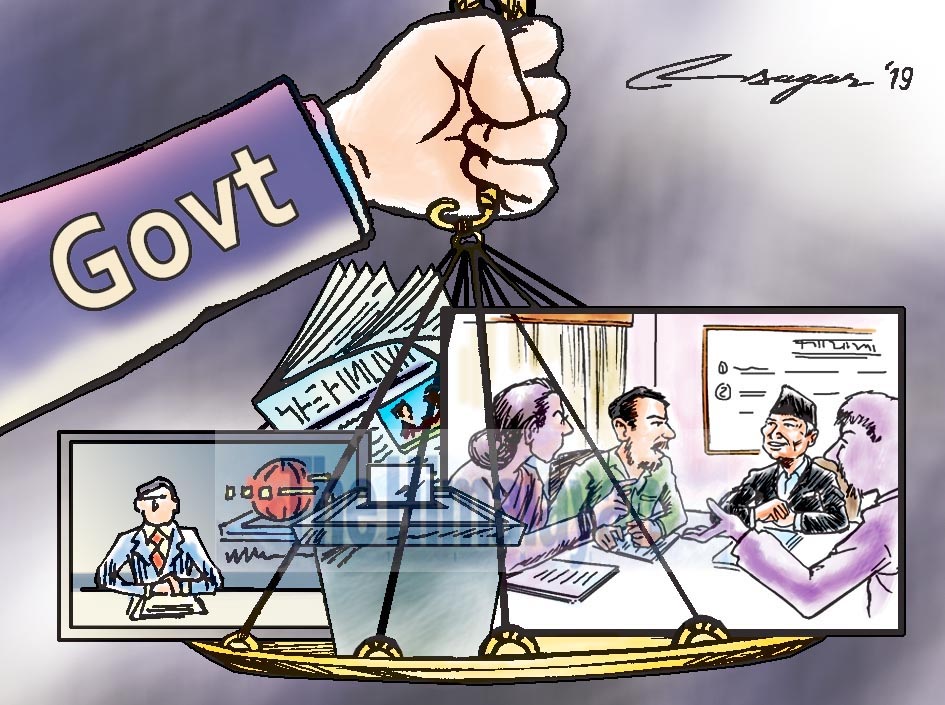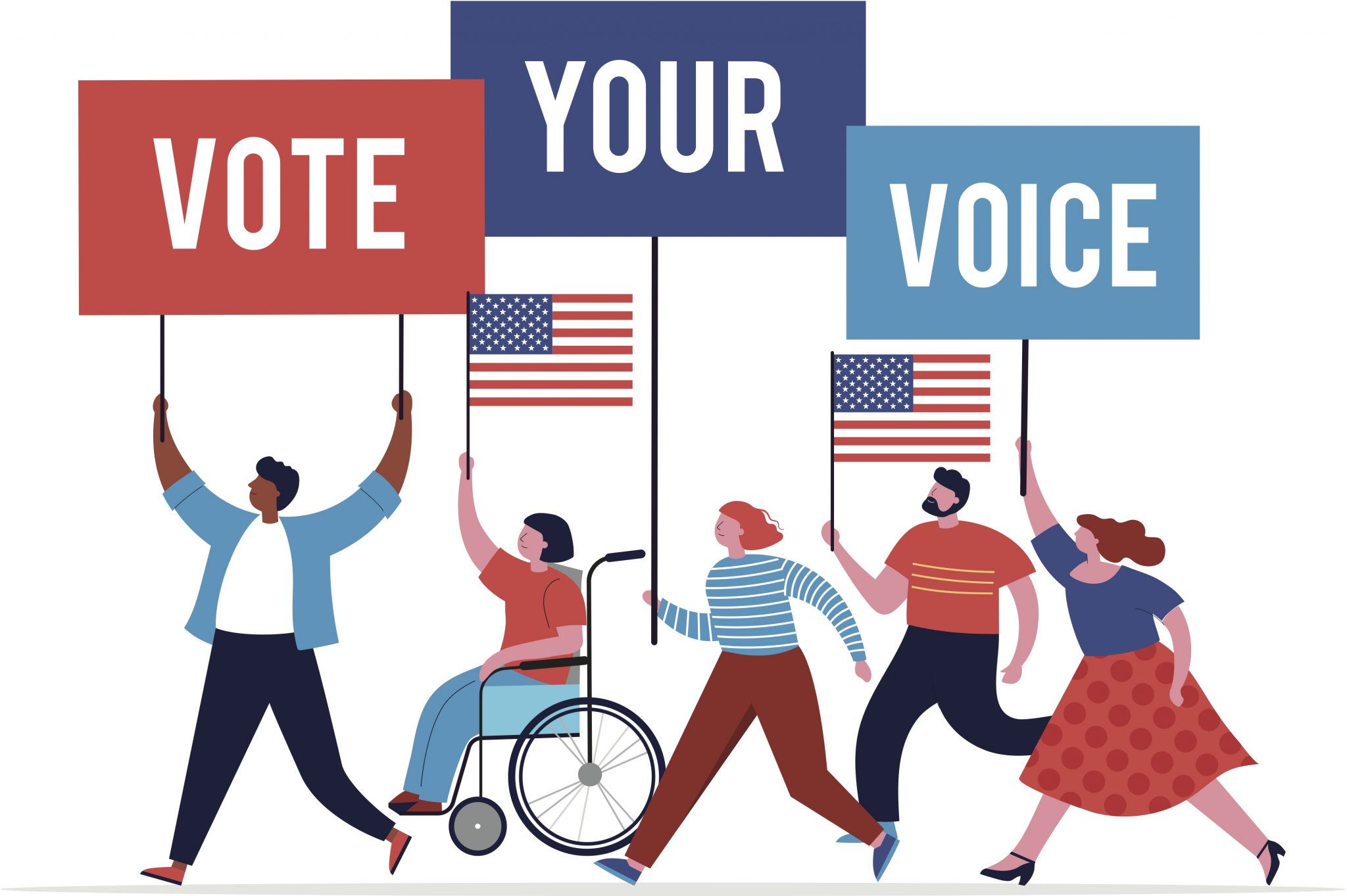Democracy: The Pillar of Modern Governance
 In the realm of political ideologies, democracy stands as a beacon of hope, a system of governance designed to empower citizens, safeguard their rights, and promote the common good. Rooted in the principles of equality, freedom, and participation, democracy has emerged as the dominant form of government in the modern world, embodying the aspirations of millions seeking self-determination and collective decision-making.
In the realm of political ideologies, democracy stands as a beacon of hope, a system of governance designed to empower citizens, safeguard their rights, and promote the common good. Rooted in the principles of equality, freedom, and participation, democracy has emerged as the dominant form of government in the modern world, embodying the aspirations of millions seeking self-determination and collective decision-making.
Defining Democracy: Principles and Practices At its core, democracy is a system of government in which power is vested in the people, either directly or through elected representatives. It rests on several key principles:
At its core, democracy is a system of government in which power is vested in the people, either directly or through elected representatives. It rests on several key principles:
- Popular Sovereignty: The authority of the government derives from the consent of the governed. In a democracy, the people are the ultimate source of political power, and their will is expressed through free and fair elections.
- Political Equality: All citizens have equal rights and opportunities to participate in the political process, regardless of their social status, wealth, or background.
- Rule of Law: Democracy is bound by the rule of law, which ensures that government actions are subject to legal constraints and that all individuals are treated equally under the law.
- Civil Liberties: Democracies uphold fundamental rights and freedoms, such as freedom of speech, assembly, and religion, which are essential for the exercise of citizenship and the protection of individual autonomy.
- Pluralism and Tolerance: Democracies accommodate diverse viewpoints and interests, fostering a climate of tolerance and compromise in which competing ideas can be debated and reconciled.
These principles manifest in various forms across different democratic systems, ranging from direct democracy, where citizens directly participate in decision-making through referendums and initiatives, to representative democracy, where elected officials act on behalf of the electorate.
The Evolution of Democracy: From Antiquity to the Modern Era The roots of democracy can be traced back to ancient civilizations such as Athens, where the concept of citizen participation in governance first took shape. However, it was not until the Enlightenment era of the 17th and 18th centuries that democracy began to emerge as a distinct political ideology, championed by philosophers such as John Locke, Jean-Jacques Rousseau, and Montesquieu.
The roots of democracy can be traced back to ancient civilizations such as Athens, where the concept of citizen participation in governance first took shape. However, it was not until the Enlightenment era of the 17th and 18th centuries that democracy began to emerge as a distinct political ideology, championed by philosophers such as John Locke, Jean-Jacques Rousseau, and Montesquieu.
The American and French Revolutions of the late 18th century provided fertile ground for the spread of democratic ideals, leading to the establishment of the world's first modern democratic republics. The United States Constitution, with its emphasis on popular sovereignty, separation of powers, and individual rights, served as a model for subsequent democratic movements around the globe.
In the centuries that followed, the democratization process accelerated, as waves of social and political change swept across Europe, Latin America, Asia, and Africa. The struggle for democracy has often been fraught with challenges, including authoritarian backlash, political instability, and social inequality. However, the resilience of democratic movements and the universal appeal of democratic principles have endured, fueling the spread of democracy to new frontiers.
Challenges and Controversies: Upholding Democratic Values in a Complex World While democracy has made significant strides in expanding political participation and protecting individual rights, it faces numerous challenges in the 21st century. One such challenge is the rise of authoritarianism and populism, fueled by economic insecurity, social polarization, and distrust in political institutions.
While democracy has made significant strides in expanding political participation and protecting individual rights, it faces numerous challenges in the 21st century. One such challenge is the rise of authoritarianism and populism, fueled by economic insecurity, social polarization, and distrust in political institutions.
Additionally, the digital revolution has posed new threats to democracy, including disinformation campaigns, cyberattacks, and erosion of privacy rights. Social media platforms, while empowering citizens to connect and organize, have also become battlegrounds for propaganda and manipulation, undermining the integrity of electoral processes and public discourse.
Furthermore, the unequal distribution of wealth and power poses a fundamental challenge to democratic governance, as economic inequality can undermine political equality and lead to the concentration of influence in the hands of a privileged few. Addressing these systemic inequalities requires robust institutions, transparent governance, and inclusive policies that prioritize the needs of all citizens.
The Future of Democracy: Renewing Commitment to Democratic Values Despite these challenges, democracy remains a resilient and adaptable system of governance, capable of responding to changing circumstances and advancing the common good. The key lies in renewing our commitment to democratic values and principles, fostering civic engagement, and strengthening democratic institutions.
Despite these challenges, democracy remains a resilient and adaptable system of governance, capable of responding to changing circumstances and advancing the common good. The key lies in renewing our commitment to democratic values and principles, fostering civic engagement, and strengthening democratic institutions.
This requires investment in education, media literacy, and civic participation to empower citizens to make informed choices and hold their leaders accountable. It also entails safeguarding democratic norms and institutions, including independent judiciaries, free and fair elections, and a vibrant civil society.
Moreover, democracy must adapt to the realities of the digital age, ensuring that new technologies serve to enhance rather than undermine democratic processes. This requires robust regulations to protect the integrity of online discourse, combat misinformation, and safeguard privacy rights.
Strengthening Democratic Institutions: Collaborative Efforts for Change In the pursuit of a more resilient democracy, it's crucial to acknowledge that no single entity can address the multifaceted challenges alone. Collaborative efforts among governments, civil society organizations, international institutions, and the private sector are essential to fortify democratic institutions and uphold democratic values worldwide.
In the pursuit of a more resilient democracy, it's crucial to acknowledge that no single entity can address the multifaceted challenges alone. Collaborative efforts among governments, civil society organizations, international institutions, and the private sector are essential to fortify democratic institutions and uphold democratic values worldwide.
International cooperation plays a vital role in supporting democracy globally. Organizations such as the United Nations, the European Union, and regional bodies like the Organization of American States (OAS) and the African Union (AU) work to promote democratic governance, monitor elections, and provide assistance to countries undergoing democratic transitions.
Furthermore, civil society organizations, including human rights groups, advocacy organizations, and grassroots movements, are instrumental in holding governments accountable, amplifying marginalized voices, and advocating for democratic reforms. Their role in promoting transparency, civic engagement, and social justice cannot be overstated.
At the national level, governments have a responsibility to enact policies that promote democratic principles and protect citizens' rights. This includes ensuring the independence of the judiciary, upholding freedom of the press, and fostering an inclusive political environment where all citizens have equal opportunities to participate in the democratic process.
Moreover, electoral integrity is paramount to the credibility of democratic institutions. Governments must invest in robust electoral systems, implement measures to prevent voter suppression and electoral fraud, and provide adequate resources for independent election monitoring and oversight.
Empowering Citizens: The Heart of Democracy At the heart of democracy lies the empowerment of citizens to actively participate in the political process and shape the decisions that affect their lives. Civic education programs play a crucial role in fostering informed and engaged citizens who understand their rights, responsibilities, and the importance of civic participation.
At the heart of democracy lies the empowerment of citizens to actively participate in the political process and shape the decisions that affect their lives. Civic education programs play a crucial role in fostering informed and engaged citizens who understand their rights, responsibilities, and the importance of civic participation.
Educational institutions, community organizations, and media outlets all have a role to play in promoting civic education and media literacy. By equipping citizens with the knowledge and skills to critically evaluate information, engage in civil discourse, and hold their leaders accountable, we can strengthen the foundations of democracy from the ground up.
Furthermore, efforts to expand access to information and promote transparency in government are essential for building trust between citizens and their elected representatives. Open government initiatives, public access to government data, and mechanisms for citizen feedback and participation can enhance accountability and foster greater public engagement in the democratic process.
Conclusion: A Call to Action for a Stronger Democracy As we navigate the complexities of the 21st century, the importance of democracy as a bulwark against tyranny, injustice, and oppression cannot be overstated. It is incumbent upon all of us—citizens, leaders, and institutions—to safeguard and strengthen democratic governance, uphold human rights, and advance the principles of freedom, equality, and justice for all.
As we navigate the complexities of the 21st century, the importance of democracy as a bulwark against tyranny, injustice, and oppression cannot be overstated. It is incumbent upon all of us—citizens, leaders, and institutions—to safeguard and strengthen democratic governance, uphold human rights, and advance the principles of freedom, equality, and justice for all.
By working collaboratively across borders, sectors, and ideologies, we can address the formidable challenges facing democracy and build a more inclusive, resilient, and responsive political system. Let us reaffirm our commitment to democratic values and principles, empower citizens to actively participate in shaping their collective future, and strive to create a world where democracy thrives and flourishes for generations to come.




























































